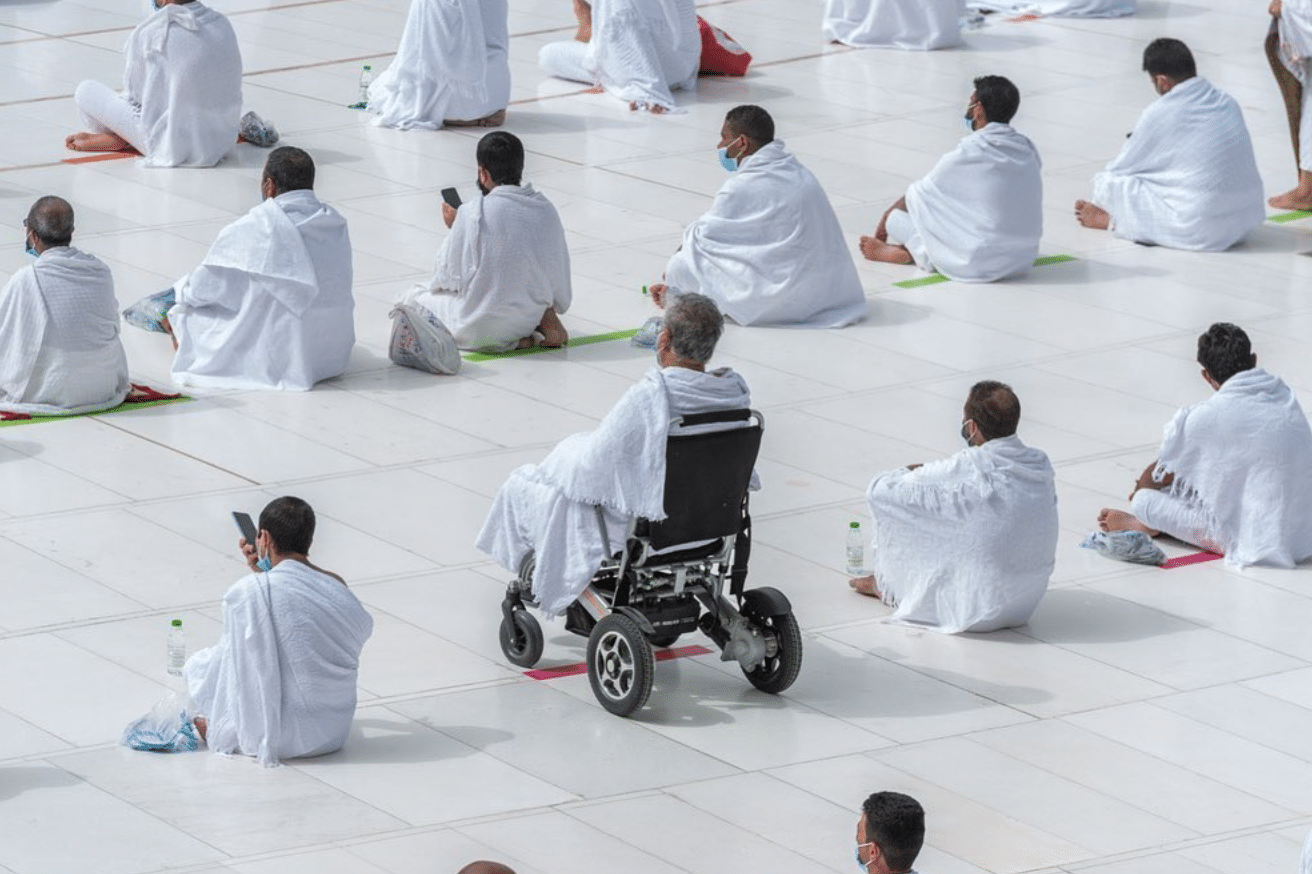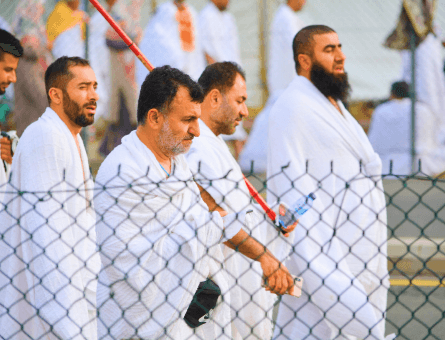What is Fidyah in Islam?
Fidyah can be defined as a charitable form of compensation that every Muslim, who is unable to fast during any of the days of Ramadan due to old age, illness, or infirmity, must pay in the name of Allah SWT. Read on to learn more about what is Fidyah and its importance in Islam.
Fidyah for Missed Fasts During Ramadan
Essentially, Fidyah is a religious payment made by a person who is either suffering from an illness that prevents them from fasting or is extremely weak due to old age or is not obliged to fast during Ramadan (menstruating, pregnant, or breastfeeding women).
According to the Hanafi School, Fidyah can only be paid by someone unable to fast during Ramadan, cannot make up for the missed fasts at any other time, and is not expected to regain the ability to compensate for the lost fasts. This means that you are only eligible to pay Fidyah if all three aforementioned conditions are fulfilled. If not, the person must make up for the missed fast by fasting rather than paying the Fidyah. Moreover, based on the teachings of the Hanafi School, Fidyah is only valid if the person has no hope of compensating for the missed fast in their lifetime. Therefore, the following people do not qualify to pay Fidyah:
- Who accidentally broke or missed their fast.
- Who missed Fasting due to a temporary illness.
- Who is unable to observe fast due to surgery but can fast in the following years.
If a person pays Fidyah believing that they won’t be able to make up for the missed fast anytime soon but then regains their health in the future, in such case, they are required to make up for the missed fast as they Fidyah will automatically be considered a charity rather than a compensatory payment.
What Does Fidyah Mean in English?
Romanized as Fidya, it is an obligatory donation (form of sadaqah) of food or money in Islam made to help those in need. Fidyah must be paid in Ramadan by a Muslim who misses or skips fast due to a valid reason such as due to an illness, extreme age (young or old), or pregnancy. Moreover, suppose a person cannot fast because they are travelling or are temporarily medically unfit. In that case, they are obligated to compensate for every missed fast by observing make-up fasts the following year. This means that the payment of Fidyah will only be accepted if a person is physically weak to fast, even in the future.
Why Is Fidyah Important in Islam?
If you are unable to fast, Allah SWT allows you to share the rewards of Ramadan by donating Fidyah to the poor. The divine allowance teaches ease and toleration by allowing people who have difficulty fasting to provide the poor with sufficient food and water. This proves the fact that “Allah does not burden a soul beyond that it can bear” (Quran: 2:286)
Verse from the Quran or Hadith
For the people who intend to fast but face difficulty, Allah SWT says:
“[Fasting is for] a limited number of days. So whoever among you is ill or on a journey [during them] – then an equal number of days [are to be made up]. And upon those who are able [to fast, but with hardship] – a ransom [as substitute] of feeding a poor person [each day]. And whoever volunteers excess – it is better for him. But to fast is best for you if you only knew.” (Qur’an, 2:184)
Moreover, for the people who are sick or traveling and cannot observe fast, Allah SWT exempts them from fasting by saying:
“Yet if one among you is sick or is on a journey [such a person shall then fast] the same number of other days” (Surah Al-Baqarah: 185)
Ibn’ Abbaas (RA) narrates that Prophet Muhammad (PBUH), on being asked about what should be done by an elderly woman who is unable to fast, said, “She should feed one poor person for each day, giving half a sa’ of the local staple food, such as dates or rice equivalent to approximately one and a half kilograms.”
In another place, Al-Bukhaari narrates, “As for an old man who is unable to fast, after Anas grew old, for one or two years he fed a poor person with bread and meat and he did not fast.”
How Much Is Fidyah for Ramadan in 2024?
According to the teachings of Islam, the amount of Fidyah for every missed fast must be equal to the value of two meals. This means that if you live in the UK, you are obligated to pay £5 per day for every Fast that you have missed, equating to £150 for the entire month of Ramadan. Fidyah should only be paid to those in need. However, in line with the cost of basic staple foods, the cost of Fidyah also fluctuates every year. The primary aim of Fidyah is to provide a poor person with two nutritious meals as compensation for every missed fast.
How to Calculate Fidyah 2024
According to the teachings of Prophet Muhammad (PBUH), the amount of Fidyah is based on a traditional volume measurement technique also known as sa’ – four double-handfuls. Prophet Muhammad (PBUH) set the value of Fidyah for every missed fast during Ramadan equivalent to two double-handfuls or half a sa’ of common food items such as wheat or two proper meals. Moreover, note that the volume of sa’ is different for grains and liquids. One sa’ of grain is 5 lbs or 2.176 kg, whereas one sa’ of water is three quarts or 2.75 liters.
You can calculate the Fidyah by using the equation: One-Half Sa’ x Missed Fasts = Total Fidyah Payment
How Do I Pay My Fidyah?
Fidyah is a donation that must be paid in either of the two forms; food or money. Ideally, it is recommended to pay Fidyah by providing a poor person with two proper meals for every fast missed. However, if you want to compensate altogether for all the missed fasts, you can easily do that by paying the value of two wholesome meals- £5- per Fast.
When Do I Pay Fidyah?
According to renowned Islamic scholars, the ideal time to pay Fidyah is during the month of Ramadan. For example, if you have missed fasting in the previous year, you should Fidyah (for the missed fast) while observing this year’s past. However, if you won’t be able to make up for the missed Fast, you can also pay the complete Fidyah amount at once.
Who Is Permitted to Miss Fasting?
The two types of people who are exempt are as follows:
Category 1
The first group of people officially exempted from Fasting includes pregnant or nursing women, traveling people, or those suffering from temporary sickness. Although these people are given the divine exemption, they are obligated to compensate by fasting anytime after the month of Ramadan. Moreover, these people are not obligated to pay Fidyah. Hence, they can only make up for the missed fasts by keeping a compensatory fast.
Category 2
The second group of people exempted from fasting in Ramadan cannot fast due to permanent and valid reasons. This includes; people suffering from chronic illness or people who are old and suffering from weakness. These people are obligated to pay Fidyah as a redemption fee for the missed fasts.
Do I Need to Pay Fidyah if I Missed Days of Ramadan Because I Was Pregnant?
According to the Hanafi School, no Fidyah is to be paid by a nursing or pregnant woman who misses fasting in Ramadan as she will be healthy enough to make up for the fasts in the future.
What if I Missed My Fasts for No Valid Reason?
If you have missed your Fast without a genuine reason, then you are not eligible to pay Fidyah. Instead, it is obligatory upon you to pay Kaffarah by either fasting straight for 60 days or feeding 60 poor individuals for every skipped fast during Ramadan.
How Do I Make Up for Years of Missed Fasts?
Once a person reaches puberty, fasting becomes obligatory. Before that, although it’s commendable, you are not held accountable for missed fasts. However, after the age of 18, for every Fast that you miss during Ramadan, whether purposely or due to negligence, you must make up for all the lost fasting days by observing fast in the following days or years. This is necessary because Allah SWT has prescribed Fidyah only for people who cannot afford fast, such as the elderly or people suffering from untreatable sickness. You can easily do this by following the Sunnah of fasting on Mondays and Thursdays.
What Is the Difference Between Fidyah and Kaffarah?
When it comes to exemptions of fasting in Ramadan, two types of penalties need to be paid in form of donations; Fidyah and Kaffarah.
Fidyah is to be paid in circumstances when a person is unable to fast due to helplessness. This includes the following situations; when someone is severely ill, too old to fast, suffering from mental illness, needs regular medication (diabetic), is breastfeeding, and pregnant. In such a case, the person should donate an equivalent amount to feeding a hungry two meals a day for every missed fast. Unlike Fidyah, Kaffarah is paid when someone misses or breaks their fast deliberately without a valid reason. Therefore, to make up for the broken or missed fast, a Muslim should either fast consecutively for 60 days or feed 60 poor people at a rate of £5 per person.
What Is Kaffarah?
In Islam, “Kaffarah” needs to be paid when a person misses or skips from fasting deliberately without a good reason. This includes consuming food or drinks with intention, sexual intercourse or masturbation during Fasting, deliberately causing harm to oneself, intentionally lying, backbiting, etc. A Muslim in any one of these conditions is obligated to fast consecutively for 60 days (excluding the days when it’s forbidden to fast like when a woman is menstruating or Eid). If this isn’t possible and the person skips a fast during the 60 days, they are required to start again, ensuring that they fast for 60 consecutive days.
However, if the person is physically weak to perform the 60-day obligatory penalty, they are supposed to pay Kaffarah (expiation). This means feeding 60 poor people for every missed or broken fast at the rate of £5 per person (£5 x 60 = £300).
Summary – Fidyah
Fasting is a religious obligation for every Muslim who has reached puberty, and Fidyah must be paid if you cannot fast for a specific number of days during Ramadan, and are physically weak to make up for the missed fast(s) later. This means that for every fast that is missed, you must pay the value equivalent to two meals a day or 2kgs wheat. Remember that there is a difference of intention that separates being genuinely unable to fast and not fasting due to worldly reasons. In either case, a Muslim should make up for the lost fasting days by paying a considerable amount, or Fidyah. To learn about the virtue of performing Umrah during Ramadan, click here.
Explore The New Pilgrim App
The Ultimate App
for Hajj and Umrah!











